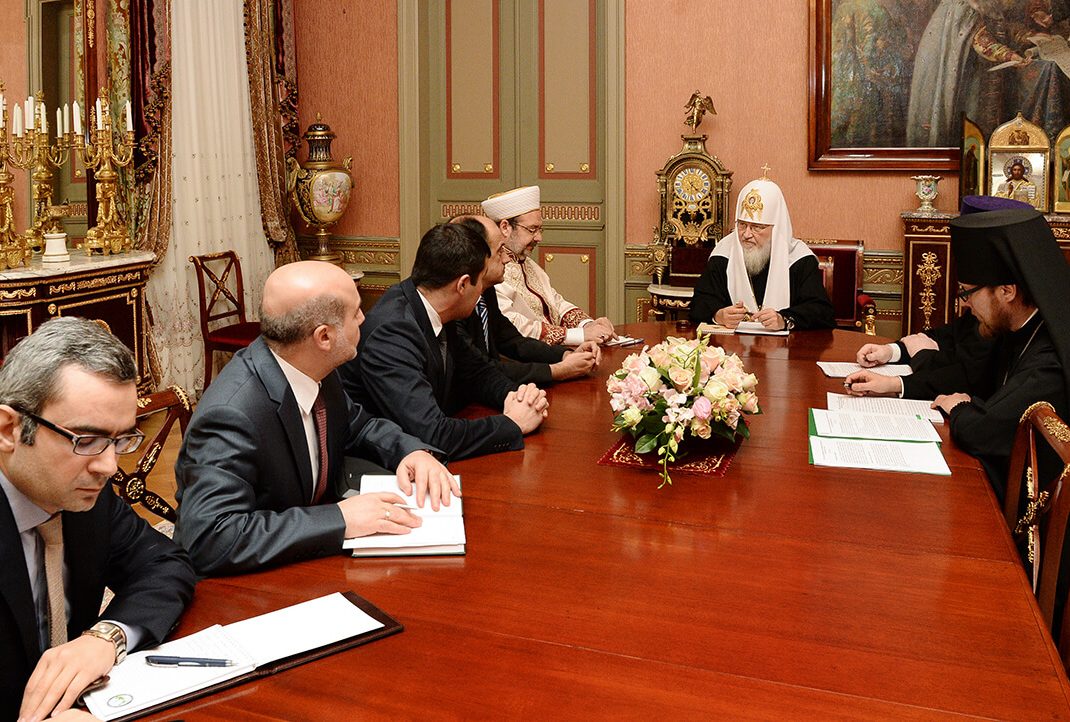RELIGION
About 99% of the Turkish population is Muslim. Jews and Orthodox Christians of Greek, Armenian, and Syrian backgrounds compose the remainder. While Turkey does not have an official state religion, every Turkish citizen’s national identification card states his or her creed. Although Atatürk’s reforms aimed to secularize the nation, Islam continues to play a key role in the country’s politics and culture.
UNDERSTANDING ISLAM
The monotheistic religion of Islam was founded by the Arab prophet Muhammed in the 7th century. At the heart of the Islamic faith is the Arabic word islam (submission). The believer, or muslim (from the active participle of islam), accepts complete submission to the wall of Allah (God) as embodied in the sacred scriptures of Islam, the Quran (recitation). The Arabic text is held to be perfect, immutable, and untranslatablethe words of God embodied in the human language.
Informed of his prophetic calling by the Archangel Gabriel, Muhammed became the “seal of the prophets,” the end of a long chain of visionaries including such Biblical luminaries as Abraham, Moses, Noah, Elijah, and Jesus. While most Christians view Jesus as both human and divine, Muslims consider Muhammed only as a human messenger of God’s word to Muslims, God is one and unique. Omnipotent and omniscient, the God of the Quran can be a stern judge, particularly when dealing with the ungrateful. Yet for a Muslim, the majesty of God’s justice lies in unbounded mercy all but one of the 114 Qu’ranic suras, or chapters, begin, “In the name of God the most Merciful and Compassionate.” In Islam, Allah is a God of uncompromising love, guiding all those who sincerely invoke His name.
THE FIVE PILLARS OF ISLAM
All Muslims are charged to adhere to the five pillars of Islam: the profession of faith, prayer five times daily, alms-giving, fasting during the month of Ramazan, and, if able, the once in a lifetime pilgrimage to Mecca.
The first pillar, upon which membership in the umma (community) depends, is the proclamation of faith, the shahadah: La ilaha ilia Allah. Ashadu anna Muhammedan rasul Allah. (There is no god but Allah. I swear that Muhammed is Allah’s messenger.) Any person who wishes to convert to Islam may do so by reciting the shahadah aloud and with heartfelt sincerity.
The second pillar of Islam is salat (prayer), performed five times daily, preferably following the call to prayer (adhan) by the muezzins. Prayers, preceded by ablutions, or ritual cleansing, begin with a declaration of intent and consist of a set cycle of prostrations and recitations in the direction of Mecca. Communal prayer on Fridays, led by the local mosque’s imam (leader), is particularly encouraged.
The third pillar, zakat (purification), is alms-giving, or the religious tax. Every Muslim who can afford to do so is required to give 2.5% of his or her income to the poor. Prior to Atatürk’s reforms, the state collected the zakat, but it has now largely become a matter of individual responsibility’.
Muslims believe that Allah revealed the Quran to Muhammed during the month of Ramazan (Ramadan). Fasting during this holy month is the fourth pillar of Islam. Between dawn and sunset, Muslims are forbidden to smoke, have sex, or let any food or water pass their lips. Exceptions exist for travelers, the sick, and women who are pregnant or menstruating. However, travelers should respectfully refrain from eating or drinking outdoors during the day. Ramadan inspires a sense of community among Muslims. They break the fast after the evening adhan is heard and begin a night of feasting, visits to friends and relatives, and revelry. Fasting is intended to be an invigorating spiritual exercise, teaching self-control and resistance to desire. The experience of hunger encourages Muslims to be both compassionate toward those less fortunate and grateful for the sustenance that God has provided them. During Ramadan, businesses may close or keep shorter hours.
The last pillar, required once in a lifetime, is the hajj (pilgrimage). Only those Muslims who are financially and physically able to fulfill this obligation make the journey to Mecca and Medina during the last month of the Muslim calendar. The hajj is a metaphorical reenactment of the Prophet. Muhammed’s path, and it serves to unite Muslims. Regardless of gender, wealth, race, or nationality, pilgrims wrap themselves in white and perform the same rituals during the hajj.
As with any religion, degrees of interpretation and observance produce a wide range of practices. For more information, try Aw Introduction to Islam by Frederick Denny, Islam: The Straight Path by John Esposito, Vision of Islam by Sachiko Murata and William Chittick, or Ideals and Realities of Islam by Seyyed H. Nasr. Kenneth Cragg and Marston Speight’s Islam from Within provides a sampling of Islamic texts. If you feel inspired enough to read the Quran, try Muhammed Pickthall’s translation, The Meaning of the Glorious Koran.



Leave a Reply